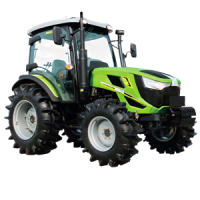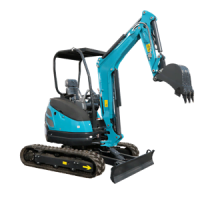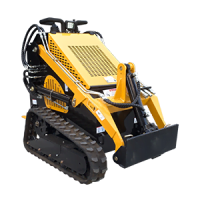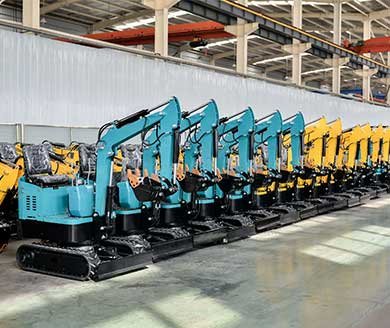Introduction
Operating an excavator backhoe, a powerful piece of heavy equipment, requires skill, training, and a keen understanding of safety protocols. Excavator backhoes are invaluable tools in construction, excavation, and various other industries, but their operation can be hazardous if not carried out with caution. In this comprehensive guide, we will explore essential safety tips and best practices for operating an excavator backhoe. Whether you’re a seasoned operator or new to the world of heavy machinery, these guidelines will help ensure a safe and productive work environment.
1. The Importance of Excavator Backhoe Safety
1.1 Understanding the Risks
Operating an excavator backhoe involves inherent risks, including the potential for accidents, rollovers, and equipment malfunctions. Understanding these risks is the first step toward ensuring safety on the job.
1.2 The Role of Training and Certification
Proper training and certification are essential for excavator backhoe operators. Training programs teach operators how to use the equipment safely, understand its controls, and respond to emergencies.
1.3 The Importance of Maintenance
Regular maintenance is crucial to prevent equipment failures and malfunctions that could lead to accidents. Maintenance schedules should be strictly followed to keep the machine in optimal condition.
2. Pre-Operation Safety Checks
2.1 Inspecting the Machine
Before operating the excavator backhoe, conduct a thorough inspection. Check for loose or damaged parts, leaks, and any signs of wear and tear. Ensure all safety features are functional.
2.2 Checking Fluid Levels
Verify that all fluid levels, including hydraulic fluids, engine oil, and coolant, are at the appropriate levels. Low fluid levels can lead to equipment failure.
2.3 Verifying Controls and Emergency Systems
Ensure that all controls and emergency systems, such as the emergency stop button and fire extinguisher, are in working order and easily accessible from the operator’s seat.
3. Safe Operating Procedures
3.1 Entering and Exiting the Cab
Use three points of contact when entering and exiting the cab to prevent slips and falls. Ensure the cab steps and handholds are clean and free of debris.
3.2 Starting and Shutting Down the Machine
Follow the manufacturer’s guidelines for starting and shutting down the excavator backhoe. Use the appropriate safety procedures to avoid accidents during these critical phases.
3.3 Operational Best Practices
When operating the machine, maintain a stable and level surface whenever possible. Be aware of overhead obstacles, and use caution when swinging the boom. Avoid overloading the bucket to prevent tipping.
4. Safety During Excavation and Material Handling
4.1 Trenching and Digging Safety
Exercise extreme caution when digging trenches or excavating. Ensure the excavation area is properly marked, and be aware of underground utilities. Never work near the edge of an excavation without appropriate safety measures in place.
4.2 Lifting and Loading Precautions
When lifting and loading materials, use proper rigging techniques and attachments. Ensure the load is secure and balanced. Avoid sudden movements and jerks that can lead to accidents.
4.3 Safe Material Handling Techniques
When handling materials, keep a safe distance from the load and use the machine’s controls to move it smoothly. Never position yourself between the load and a fixed object.
5. Operator Safety
5.1 Personal Protective Equipment (PPE)
Operators should wear appropriate personal protective equipment (PPE), including a hard hat, safety vest, gloves, and steel-toed boots. Hearing protection may also be necessary.
5.2 Operator Awareness and Communication
Maintain constant awareness of your surroundings and communicate with ground personnel effectively. Use hand signals or two-way radios to convey instructions and warnings.
5.3 Fatigue Management
Operator fatigue can lead to accidents. Take regular breaks, stay hydrated, and ensure you are well-rested before operating the excavator backhoe.
6. Emergency Procedures and First Aid
6.1 Dealing with Equipment Malfunctions
If you encounter equipment malfunctions or unusual sounds, immediately shut down the machine and report the issue to the appropriate personnel. Do not attempt to repair the equipment unless trained to do so.
6.2 Responding to Accidents
In the event of an accident or equipment rollover, follow established emergency procedures. Evacuate the cab if necessary, and seek medical attention for injuries.
6.3 First Aid and Medical Assistance
Operators should have basic first aid training and access to first aid kits. Ensure that there is a clear protocol for obtaining medical assistance in case of serious injuries.
7. Environmental and Site Safety
7.1 Protecting the Environment
Minimize the environmental impact of your work by avoiding spills, controlling dust, and properly disposing of waste materials. Follow environmental regulations and guidelines.
7.2 Site Safety Measures
Adhere to site-specific safety measures and protocols. Ensure that warning signs and barriers are in place to protect workers and bystanders.
7.3 Adherence to Regulations
Stay informed about local, state, and federal safety regulations that apply to your work. Compliance is essential to avoid penalties and accidents.
8. FAQ: Common Questions About Excavator Backhoe Safety
8.1 Do I need specific training to operate an excavator backhoe?
Yes, operators should undergo specialized training and obtain certification to operate an excavator backhoe safely.
8.2 What should I do if I encounter an unfamiliar control or warning light while operating the machine?
Stop the machine immediately and consult the operator’s manual or a qualified technician for guidance.
8.3 Are there any age restrictions for operating an excavator backhoe?
Age requirements for operators may vary by region and employer. It’s essential to comply with local regulations and industry standards.
Conclusion
Operating an excavator backhoe can be a rewarding and productive experience when safety is a top priority. By following the safety tips and best practices outlined in this guide, you can help prevent accidents, protect yourself and others, and ensure a secure and efficient work environment. Always remember that safe operation is paramount when working with heavy machinery like excavator backhoes, and ongoing training and vigilance are key to success in the field.







-1.png)